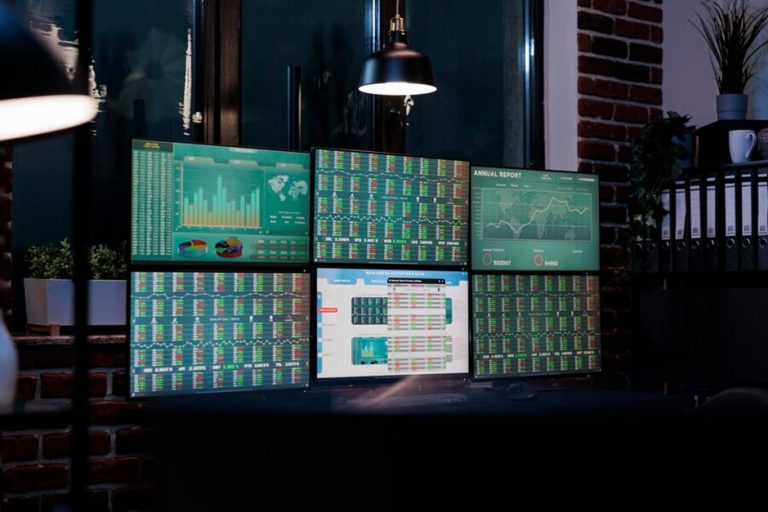
American multinational corporation and technology company Nvidia, is poised to encounter fierce competition as a consortium of rival companies have collaborated to construct a suite of AI-powered software tools.
According to a report from Reuters, tech giants which include Qualcomm, Google, and Intel have grouped in a consortium named the UXL Foundation to build a suite of software and tools that will be able to power multiple types of AI accelerator chips.
The software, an open-source project built initially using Intel technology, aims to make computer code run on any machine, regardless of what chip and hardware powers it.
Register for Tekedia Mini-MBA edition 19 (Feb 9 – May 2, 2026): big discounts for early bird.
Tekedia AI in Business Masterclass opens registrations.
Join Tekedia Capital Syndicate and co-invest in great global startups.
Register for Tekedia AI Lab: From Technical Design to Deployment (next edition begins Jan 24 2026).
This collaboration signals a strategic effort by competing companies to leverage their collective strengths and expertise in artificial intelligence to challenge Nvidia’s dominant position. By joining forces, these firms can combine their research, development, and technological capabilities to create innovative solutions that rival Nvidia’s offerings.
With more than 4 million global developers relying on Nvidia’s CUDA software platform to build AI and other apps, these companies are trying to create their own version of CUDA software, that will see developers tempted to try out other chips, particularly at a time when supply constraints have ravaged Nvidia and others.
Senior Director and Head of AI and ML Product Management at Qualcomm Vinesh Sukumar disclosed to Reuters that the consortium was showing developers how to migrate out from an Nvidia platform. The consortium technology remains underwork, with technical details not expected to be nailed down until the end of the year.
Known for its dominance in AI chips, Nvidia has also fortified its market position through its CUDA software platform, crucial for AI and app development.
No other firm has benefited from the boom in artificial intelligence (AI) as much as Nvidia. Since January 2023 the chipmaker’s share price has surged by almost 450%.
Nvidia earned its $2.2 trillion market cap by producing artificial intelligence chips that have become the lifeblood powering the new era of generative AI developers from startups to Microsoft, OpenAI, and Google parent Alphabet. More than 4 million global developers rely on Nvidia’s CUDA software platform to build AI and other apps.
While the company has established itself as a leader in AI hardware with its GPUs (Graphics Processing Units), there are speculations that the rise of competing software solutions could disrupt its market dominance and reshape the competitive landscape.
It is interesting to note that the interest in unseating Nvidia through a potential weakness in software has ramped up since last year, with several companies and startups developing their AI-powered software chips.
For Nvidia, the prospect of facing intensified competition necessitates a strategic response. The company may need to invest further in research and development to maintain its technological edge, enhance its software offerings, and differentiate itself from competitors.
When asked about the open source and venture-funded software efforts to break Nvidia’s AI dominance, Nvidia executive Ian Buck said in a statement: “The world is getting accelerated. New ideas in accelerated computing are coming from all across the ecosystem, and that will help advance AI and the scope of what accelerated computing can achieve.”
Nvidia whose chip technology dominates in data centers used to create artificial intelligence (AI) software, announced new products to help the personal computer industry lure consumers with “AI PCs”.
Despite the intensified rivalry, the company is well-positioned to continue to be a leader in the AI hardware market for many years to come. The company’s strong track record of innovation, its strong ecosystem, and its large and growing customer base give it a significant advantage over its competitors. However, the company will need to continue to innovate and adapt to the changing nature of AI to maintain its dominance.
At the GTC 2024, an annual conference held by Nvidia, the company said it wants to become the “TSMC for AI” as it expands beyond hardware and taps into software services.
Nvidia, CEO Jensen Huang unveiled a series of platforms and tools that will make it easier for developers to custom-build and deploy their own AI products based on pre-built AI models by Nvidia.
Most analysts expect that Nvidia, which controls more than 95% of the market for specialist AI chips, will continue to grow at a blistering pace for the foreseeable future.
As demand for generative AI services continues to grow, with the AI chip market projected to more than double by 2027, to roughly $140 billion, it is evident that chips will be the next big battleground for AI supremacy.



